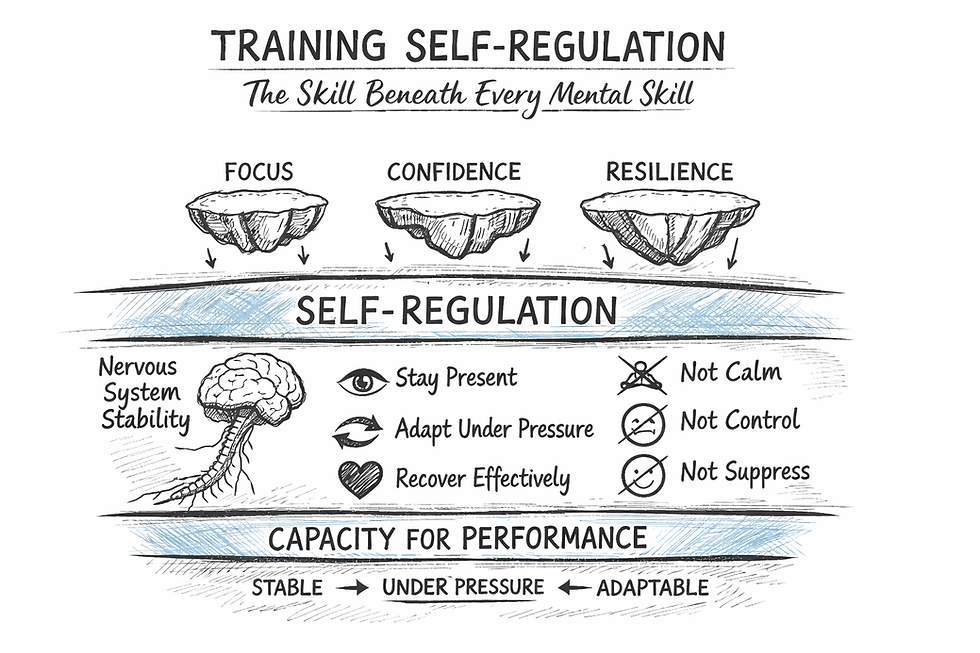Unlocking Peak Performance: Embracing the Process, Celebrating the Journey
- Kate Allgood
- Sep 19, 2023
- 3 min read
Updated: Dec 18, 2023
In the world of sports, where victory and defeat are often measured in fractions of a second or by a single point, it's easy to fall into the trap of fixating on results. Athletes and coaches alike can become consumed by the relentless pursuit of wins and championships, often to the detriment of their mental and emotional well-being. But what if I told you that the key to unlocking peak performance lies not in the outcome, but in the journey itself?
In the high-stakes world of sports, it's natural to want to win. After all, that's the ultimate goal, right? The desire to win can be a powerful motivator, but when it becomes the sole focus, it can lead to stress, anxiety, and burnout. The truth is, success in sports is often fleeting, and there are many variables beyond an athlete's control.
Legendary athletes like Michael Jordan, Serena Williams, and Tom Brady have something in common besides their numerous titles and accolades. They all understand the power of embracing the process. Instead of fixating on winning, they focus on mastering the fundamentals, improving day by day, and giving their best effort in every practice and competition. Here are some ways to help you embrace the journey:

1. Goal Setting and Process-Oriented Goals:
Setting goals is a fundamental aspect of any athlete's journey. However, shifting your mindset from outcome-oriented goals (e.g., winning the championship) to process-oriented goals (e.g., improving your technique or fitness) can be transformative. Process-oriented goals are within your control and provide a clear path to progress.
2. Embracing Growth and Learning:
Every athlete faces setbacks and failures along the way. But instead of viewing these moments as defeats, embracing them as opportunities for growth and learning can make all the difference. The process-driven athlete understands that every experience, good or bad, contributes to their development.
3. Staying Present and Mindful:
One of the keys to prioritizing the process is staying present and mindful during training and competition. When athletes focus on the task at hand rather than worrying about the outcome, they perform at their best. Mindfulness techniques can help athletes stay in the moment, enhancing their ability to concentrate and make split-second decisions.
4. The Role of Mental Performance Coaching:
Mental performance coaches play a pivotal role in helping athletes shift their mindset towards the process. They provide strategies and techniques to enhance mental resilience, maintain focus, and develop a growth-oriented attitude.
Summary
For coaches and athletes looking to prioritize the process, here are some practical strategies:
Set process-oriented goals that are specific, measurable, and attainable.
Implement mindfulness and visualization techniques into training routines.
Foster a growth mindset by reframing setbacks as opportunities.
Celebrate small victories along the way to maintain motivation.
In conclusion, while winning may be the ultimate goal in sports, it's the process and the journey that pave the way to success. By shifting the focus from outcomes to the daily effort and improvement, athletes and coaches can not only enhance their performance but also find greater fulfillment in their athletic endeavors.
We encourage you to share your experiences with us. How has prioritizing the process transformed your approach to sports? Do you have any additional tips or insights to share? Join the conversation in the comments below and connect with us on social media for further guidance on mental performance coaching.
To your success,
Kate
Envision • Execute • Elevate
About: Kate Allgood is trained in the field of applied sport psychology. She holds two Masters degrees in psychology where she graduated with distinction. She has spent the past 14 years working one on one with high school, college, Olympic, and professional athletes to help them with their mindset, mental performance and mental skills training. Kate has also been a consultant for professional teams, including the Anaheim Ducks primary minor league affiliate the San Diego Gulls, to help the team and players develop their mental game. It is important to note that while Kate has graduate school training in applied sport psychology and general psychology, she does not diagnose or treat clinical disorders, and is not a licensed psychologist.
**The information provided is not to dispense medical advice or prescribe the use of any technique, either directly or indirectly, as a form of treatment for physical, emotional, or medical problems, without the advice of a physician. The information provided is only to offer information of a general nature to help you in your quest for high performance. If you know or suspect you have a health problem, it is recommended you seek your physician's advice.
References:
Dweck, C. S. (2006). Mindset: The New Psychology of Success. Random House.
Csikszentmihalyi, M. (1990). Flow: The Psychology of Optimal Experience. Harper & Row.



Comments